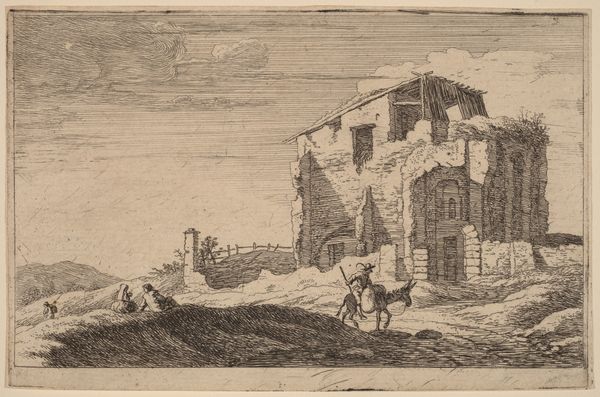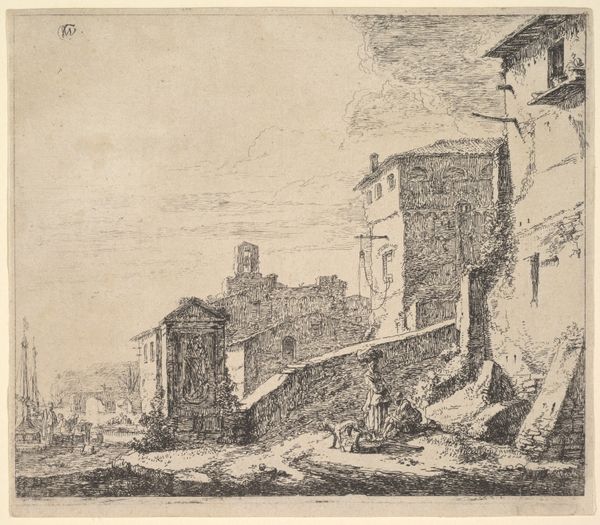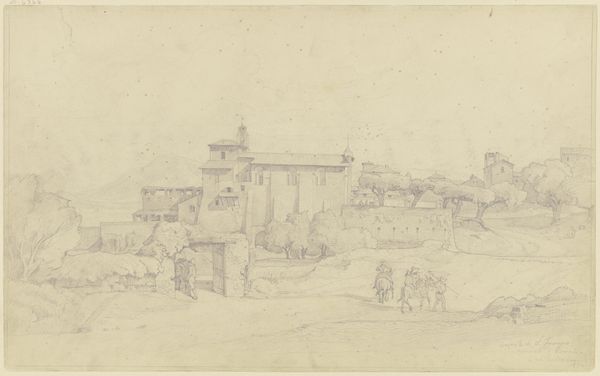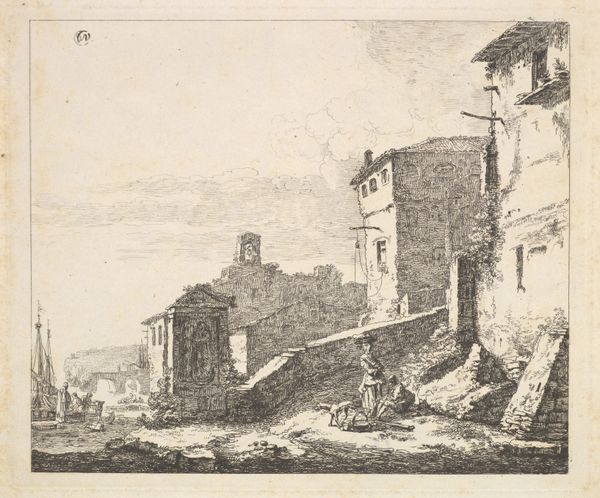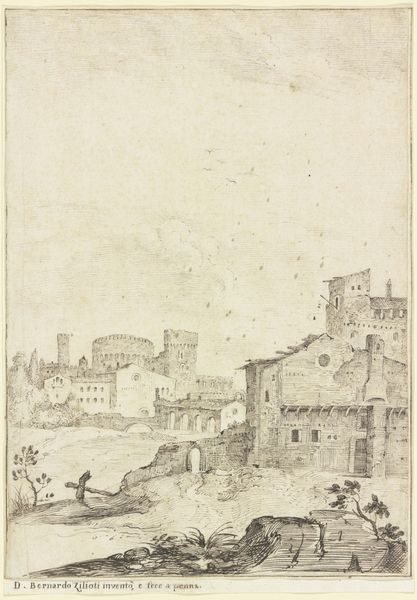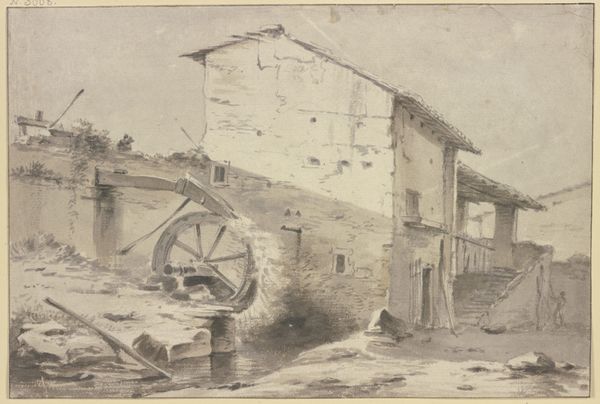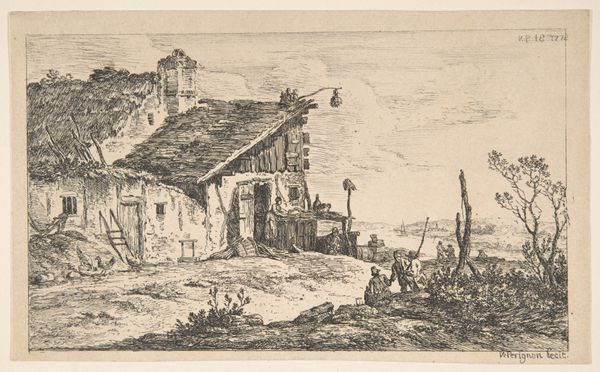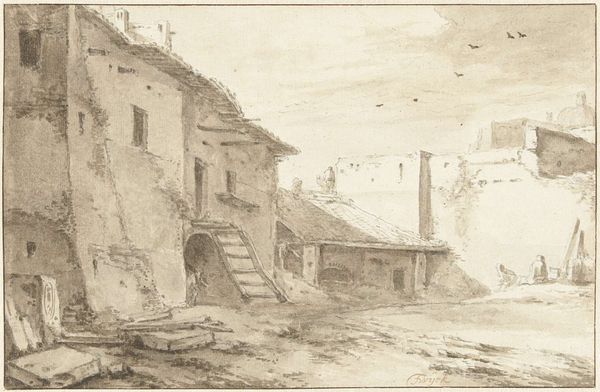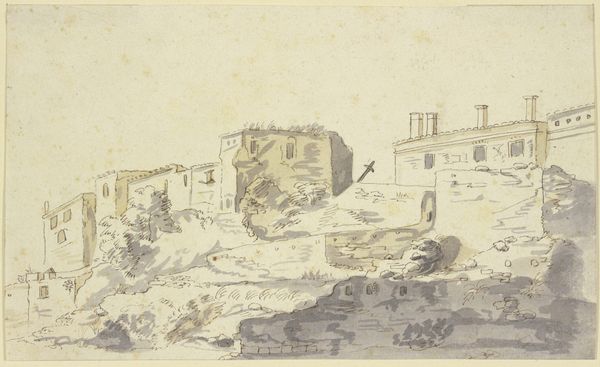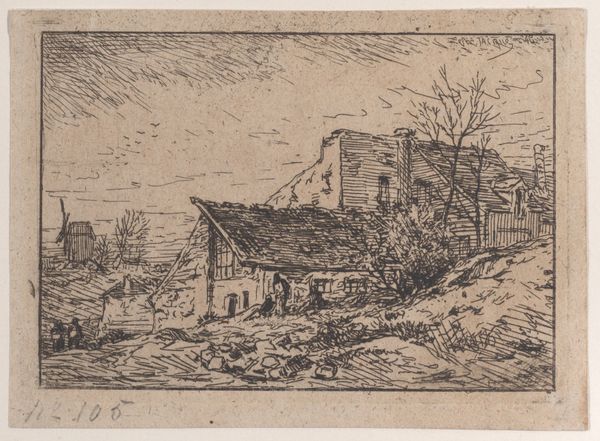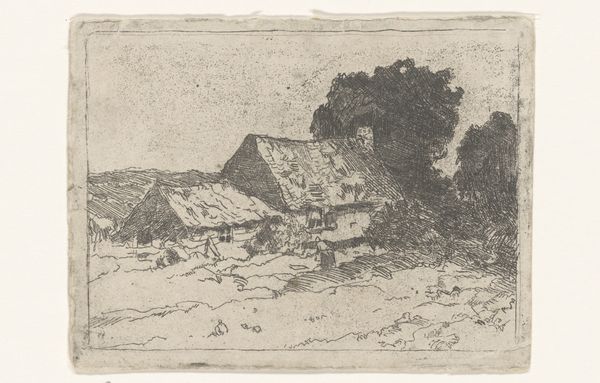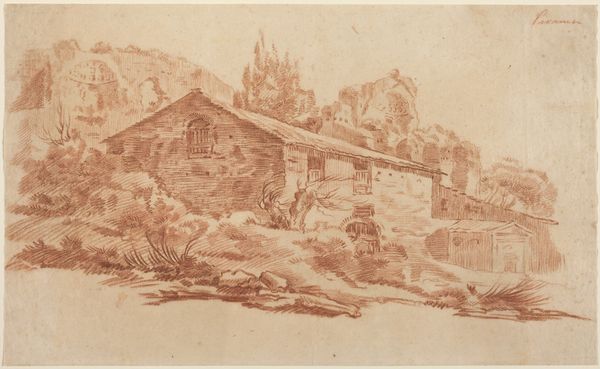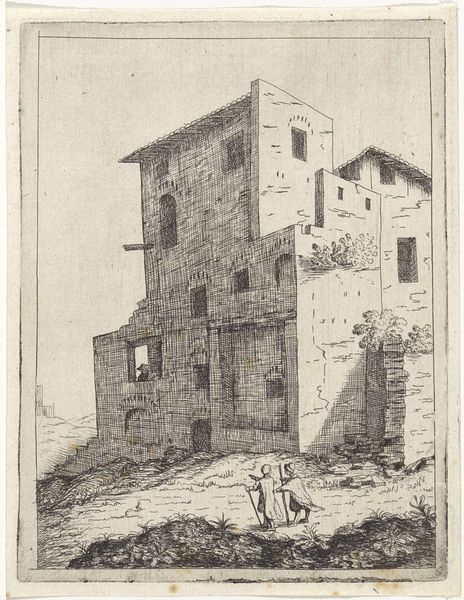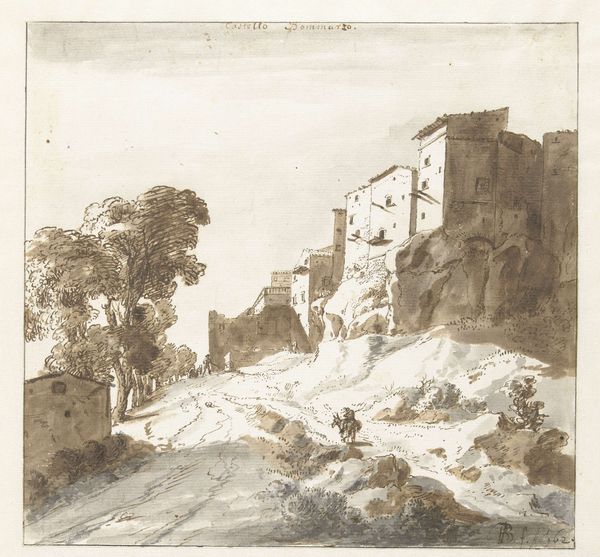
print, etching
#
baroque
# print
#
etching
#
landscape
Copyright: National Gallery of Art: CC0 1.0
Editor: This is "The Inn near Prima Porta", an etching by Bartholomeus Breenbergh. It's hard to pin down the date exactly. I'm struck by how the artist captured the light and shadow, creating this slightly melancholic atmosphere. What draws your eye when you look at it? Curator: My attention is immediately drawn to the inn's state of disrepair and the surrounding landscape. The ruin, in a state of decay, begs us to consider what kind of historical or social circumstances brought it to its current form, don't you think? Editor: Absolutely, it feels like a commentary on the impermanence of things. But how much of that is just the natural process of aging versus something more systemic? Curator: That's the critical question! In the context of 17th-century Europe, particularly the Dutch Republic where Breenbergh was working, the ruins speak volumes. Was it political and religious conflict, a changing economic landscape, or something else entirely? And what impact did the depiction of crumbling infrastructure have on people? Editor: That makes me think about access, about who is excluded and included when the road itself is in such disrepair... Curator: Exactly! Landscape wasn’t simply a neutral backdrop but actively shaped social relations. We also might want to consider the representation of rural spaces vs. cityscapes, how that dynamic influenced the era’s thinking about national identity, or class divisions. Editor: So the romanticism I initially saw is only a surface-level reading. There's a deeper critique of the status quo embedded in the imagery? Curator: Precisely! It invites us to consider who is benefiting from the decline and decay and who is suffering as a result, encouraging an important conversation around social change, access, and how people relate to their surroundings. Editor: I never thought of landscape art as potentially having that much to say about politics and economics! Curator: By recognizing landscape’s relationship to power, we reveal not just the pretty view but its capacity for prompting discussion.
Comments
No comments
Be the first to comment and join the conversation on the ultimate creative platform.
